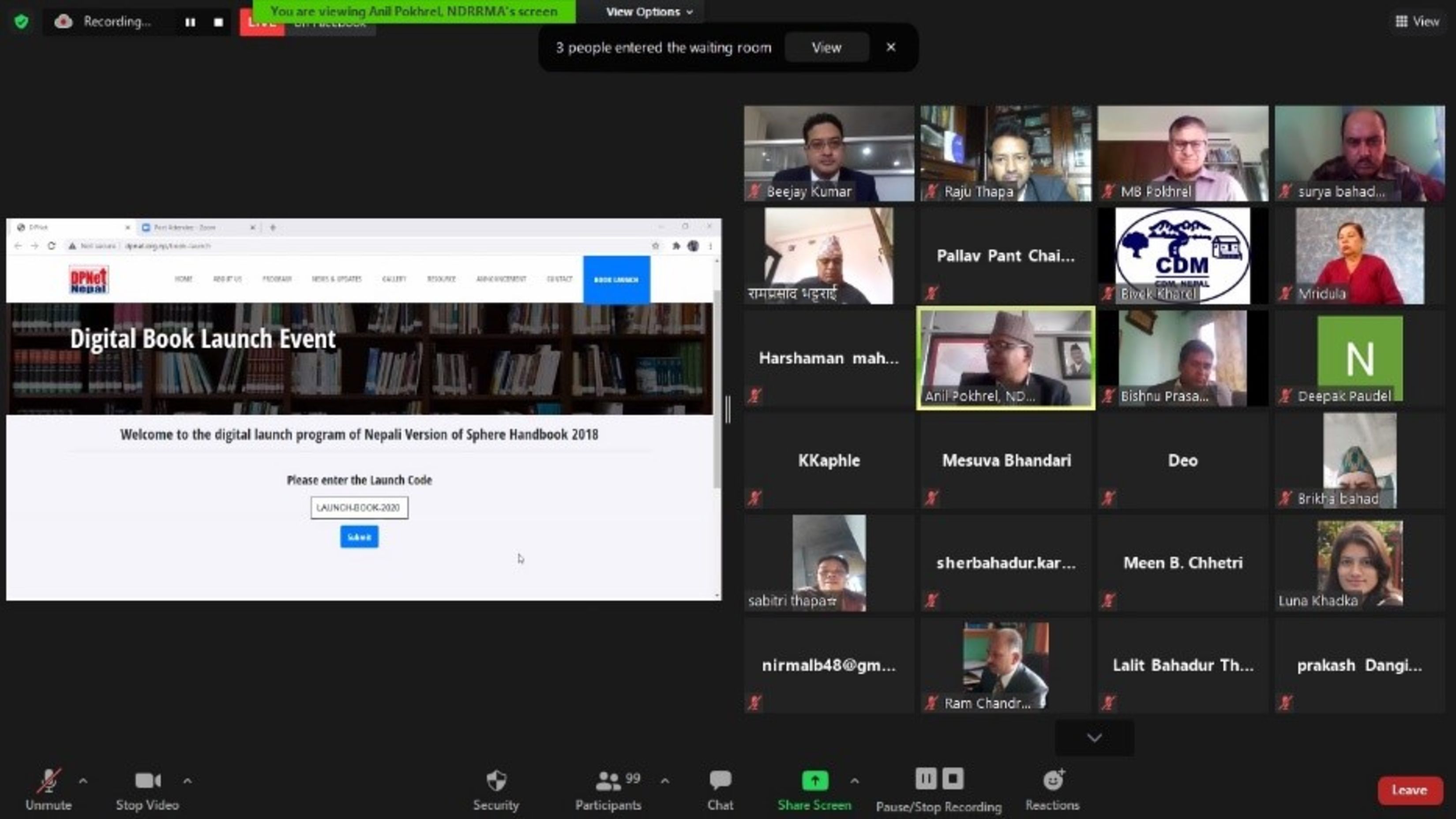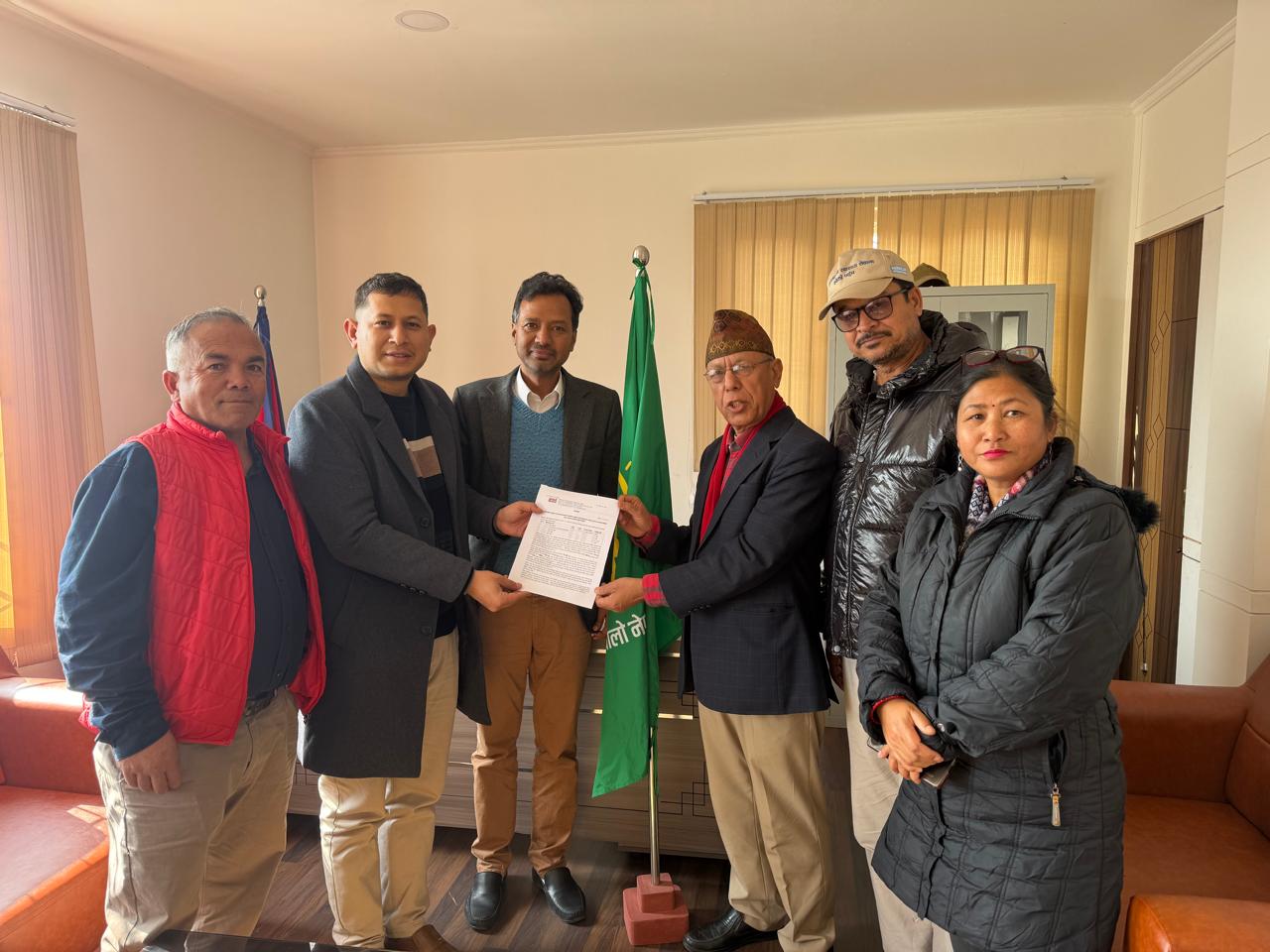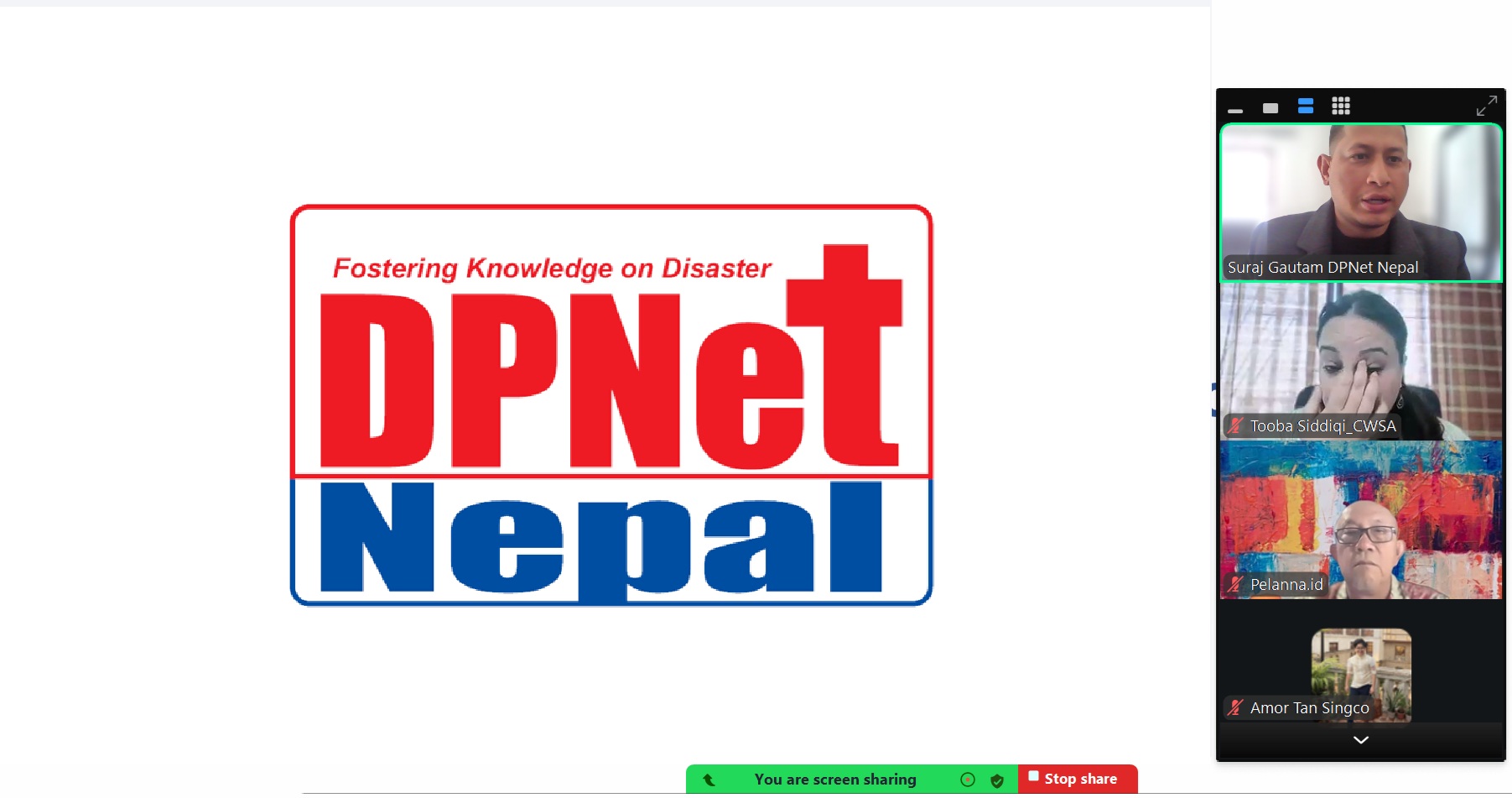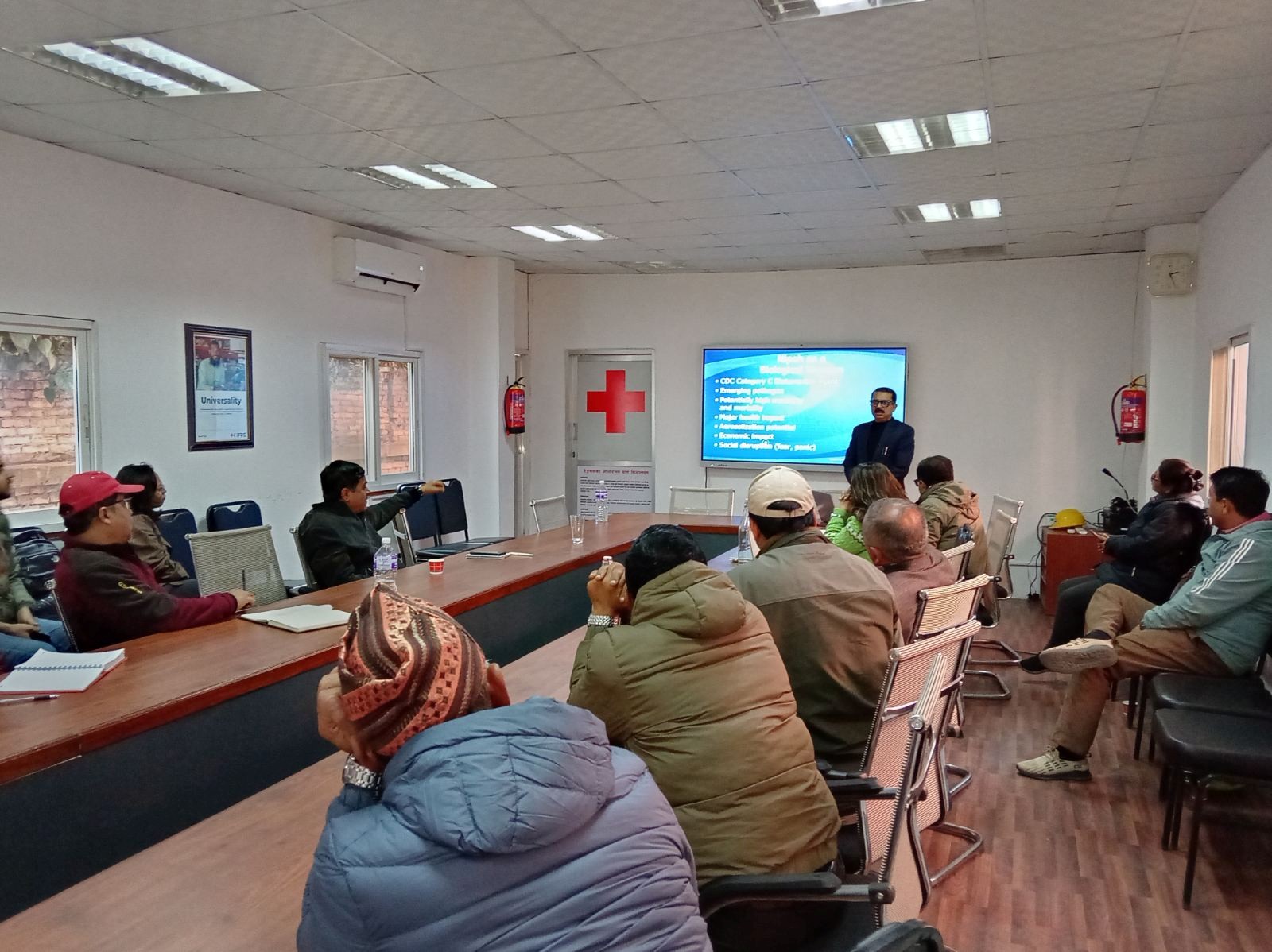Nepali Version of Sphere Handbook Launched to Enhance Disaster Risk Reduction in Nepal

Nepali Version of Sphere Handbook Launched to Enhance Disaster Risk Reduction in Nepal
Kathmandu, Nepal - In a significant milestone for Nepal's disaster risk reduction efforts, the Nepali version of the Sphere Handbook 2018 was officially launched on 2nd December 2020. The launch program, organized by the Disaster Preparedness Network Nepal (DPNet), gathered 103 participants representing government and non-governmental agencies, with the majority being humanitarian practitioners working in the field of disaster risk reduction.
Under the coordination of DPNet, the Sphere Handbook was translated into Nepali and published with the support of several contributing agencies, including Action Aid, Caritas, Christian Aid, Dan Church Aid, International Nepal Fellowship, Lutheran World Federation, Oxfam, Plan International, Save the Children, and World Vision International. The program was chaired by Mr. Surya Bahadur Thapa, Chairperson of DPNet, and graced by the presence of Mr. Anil Pokhrel, Executive Chief of the National Disaster Risk Reduction and Management Authority (NDRRMA), as the Chief Guest.
During the virtual launch ceremony, Mr. Anil Pokhrel performed the official unveiling of the Nepali translation of the Sphere Handbook. He commended DPNet for the diligent translation work and highlighted the pride of Nepal having the distribution rights of the Nepali version in Bhutan, Brunei, and Myanmar. Mr. Pokhrel emphasized the significance of the Sphere Standard, mentioning that the National Strategy for Disaster Risk Management 2009 was the first document by the Government of Nepal to recognize its importance. Considering Nepal's vulnerability to natural disasters, he stressed the critical role of the Sphere Standard in raising awareness and providing guidance for humanitarian assistance.
Mr. Raju Thapa, General Secretary of DPNet and Coordinator of the Sphere Coordination Committee (SCC) shared the initiatives undertaken to institutionalize and localize the Sphere Standard in Nepal. He highlighted the efforts to produce skilled human resources on the Sphere Standard at the national and provincial levels, especially crucial during the ongoing COVID-19 pandemic. Mr. Thapa expressed gratitude towards all contributing agencies, SCC members, stakeholders, and Sphere Trainer Subhashis Roy for their contributions and support in promoting the Sphere Standard in Nepal.
Speaking on behalf of the contributing agencies, Mr. Gopal Dahal, Humanitarian Manager of the Lutheran World Federation, lauded the publication of the Nepali version and its potential to disseminate the Sphere Standard beyond Nepal to Nepali-speaking communities. He acknowledged the extensive work put in by translator Mr. Badri Khanal and proofreader Mr. Murari Binod Khanal to ensure the accuracy and readability of the translated handbook. Mr. Dahal emphasized that the Sphere Standard serves as a valuable tool for a rights-based approach, fundraising, and advocacy, and expressed commitment towards supporting its institutionalization in Nepal.
During the program, 11 participants who had undergone Sphere Training of Trainers delivered nine presentations covering various topics such as the overview of the Sphere Standard, updates in the 2018 edition, the Humanitarian Charter, Protection Principles, Core Humanitarian Standard, WASH (Water, Sanitation, and Hygiene), Food Security and Nutrition, Shelter and Settlement, and Health. Mr. Surya Bahadur Thapa stressed the importance of institutionalizing the Sphere Standard in Nepal by localizing it across provinces and local levels to maintain minimum standards during humanitarian assistance. He also outlined plans for collaboration with provincial and local governments, private sectors, and stakeholders to ensure the effective implementation of the Sphere Standard in Nepal.
The successful launch of the Nepali version of the Sphere Handbook was met with appreciation and gratitude towards the Chief Guest, contributing agencies, presenters, participants, and Atuallya Foundation for providing technical support. The program concluded with Mr. Surya Bahadur Thapa expressing his appreciation for the translation work and extending thanks to Mr. Badri Nath Khanal and Mr. Murari Binod Pokhrel for their dedicated efforts in translating and proofreading the handbook.
The video of the program can be found in the YouTube link https://youtu.be/WACxcrUY8D











